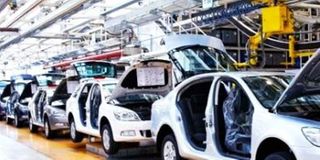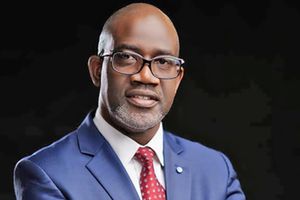How East Africa’s vehicle assembly can transform industry

What you need to know:
With the region’s growing demand for vehicles and infrastructure development, this move aims to foster collaboration, reduce competition within similar markets, and increase economic benefits for each nation.
Dar es Salaam. In an effort to strengthen East African economies, key investors are advocating a regional approach to vehicle assembly by establishing specialised centres of excellence within member countries.
With the region’s growing demand for vehicles and infrastructure development, this move aims to foster collaboration, reduce competition within similar markets, and increase economic benefits for each nation.
One such proponent of this strategy is Isuzu East Africa, a longstanding investor in the region. The company recently emphasised the potential of this model during an event in Dar es Salaam, where it launched its latest mu-X and D-Max vehicle models for Tanzanian market.
For companies like this, a sustainable approach lies in developing centres of excellence for different vehicle segments within each country, fostering specialisation and shared expertise.
The Managing Director of Isuzu East Africa, Ms Rita Kavashe, explained on November 7, 2024 that the model not only avoids market overlap but also encourages expertise exchange and regional synergy.
“We do not plan to set up a plant to assemble our vehicles in Tanzania, However, we are committed to building centres of excellence across the East African Community (EAC) in the vehicle industry.
“This is our path to sustainable growth, and we believe it will lead to a more profitable and unified business environment,” she said.
Isuzu’s strategy emphasises that each country within the EAC could excel in a particular area of vehicle assembly.
Tanzania, for instance, has already begun specialising in assembling tourism vehicles, with Arusha emerging as a hub for this segment.
“Our goal is to continue strengthening partnerships with local expertise, so they can help assemble specific vehicles like those used in the tourism sector,” Ms Kavashe noted, adding that, “Factories in Tanzania have greatly supported us in this area.”
Isuzu’s collaboration with Tanzania does not stop at vehicle assembly. According to Ms Kavashe, the company has invested in 25 dealers within the country, contributing to a value chain that includes local distributors, service providers, and spare parts suppliers.
“This is an investment by Tanzanians themselves, We want our efforts to benefit investors not only here but across the entire East African region,” she added.
The Tanzanian government has also expressed enthusiasm about the potential for centres of excellence.
Speaking at the event, the Director of Transport Infrastructure at Tanzania’s Ministry of Transport, Mr Shomari Omar Shomari, remarked: “Specialised centres are a vital step toward strengthening regional collaboration.”
According to him, the vehicles arrived at a time when Tanzania was experiencing major infrastructure development projects that required such kind of support.
Mr Shomari highlighted that Tanzania’s partnership with Isuzu had also enhanced technical capacity within the nation.
“Isuzu’s contribution goes beyond just selling vehicles; they are investing in the skills and knowledge of our professionals,” he said.
“As more Tanzanians are trained to service and maintain vehicles, we are building a skilled labour force that can meet both local and regional demand,” he added.
He emphasised the importance of this capacity-building approach, particularly as Tanzania seeks to develop a self-sustaining economy where local expertise drives the industry forward.
This drive for localised expertise is underscored by the substantial impact Isuzu has had on Tanzania’s economic growth.
The company’s exports to Tanzania make up about 40 percent of its regional output, largely attributed to Tanzania’s robust GDP growth, which is projected to hit 7.5 percent.
The bustling construction projects in cities like Dar es Salaam have resulted in increased demand for reliable vehicles, with Isuzu seizing the opportunity to supply them.
Industry experts agree that the centres of excellence offer significant advantages for East African countries, allowing them to leverage their unique resources while benefiting from cross-border collaboration.
An economist specialising in regional trade, Dr Joseph Ndulu, pointed out, “By establishing specialised hubs, we can maximize each country’s strengths and avoid saturating the market with similar products. This ensures that each nation has a role in the supply chain and benefits from the expertise of its neighbours.”
Recognising Tanzania’s abundant natural gas resources, the Isuzu Company is conducting research to introduce vehicles that run on compressed natural gas (CNG) in the Tanzanian market.
“Our goal is to adapt to each country’s natural resources and regulations. For Tanzania, CNG will be one of the technologies we employ, alongside future electrification efforts,” Ms Kavashe.
She further explained that Isuzu’s choice of technology would vary, depending on the country’s available raw materials and regulatory framework.
“We are not using a one-size-fits-all model. Instead, we’re assessing the environmental policies of each country and tailoring our vehicle models accordingly,” she said.





